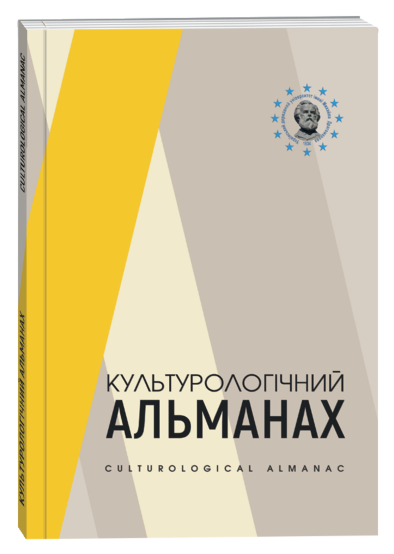FEATURES OF PERCEPTION OF VALIDITY WITHIN THE DIGITAL SPACE
DOI:
https://doi.org/10.31392/cult.alm.2022.3.17Keywords:
social reality, digital space, cultural memory, creativity, individual freedomAbstract
The article examines the characteristics of human existence, which is covered by threats dimensions: past, present and future. By substantiating the characteristics of cultural memory, creativity and individual freedom, the position of a person in the modern world is determined. This is due to the fact that changes in the fundamental processes of being form a new culture of world perception, connecting with new mechanisms of information transmission, methods of cultural and educational practice, forms of social communication. Outlining the problem of the peculiarities of the perception of reality with in the digital space, the socioanthropological characteristics of the individual are considered on the basis of the available knowledge and experience of a person, the level of his information culture. Changes in social life caused by the fourth information revolution and the emergence of the information value of human existence remove the barriers of past experience, form new life strategies and focus on the future horizon. Human integrity is produced in the social world, realized in communicative practices through interaction related to information. Social dynamics reflect changes in the way of life, determined new social roles according to the stratometric concept, and lead to the adoption of new living standards. Functional transformations form a new social norm of modern society - lifelong education. Educational activity becomes the main form of life activity. Creativity is defined as the main characteristic of modern life. A creative person is able to change, is not guided by established stereotypes, quickly adapts to the conditions of the present and determines his own strategies for self-realization. The consequences are reflected in the change of stereotypes of thinking, fix the new social reality.
References
Bartlett F. C. (1995). Remembering. A Study in Experimental and Social Pszychology. Cambridge (Mass.). 317 р.
Peters T. (2003). Re-imagine! Business Excellence in a Disruptive Age. London. 352 р.
Ассман А. (2012). Простори спогаду. Форми та трансформації культурної пам’яті /пер. з нім. К. Дмитренко, Л. Доронічева, О. Юдін. Київ. 440 с.
Бауман З. (2008). Текучая современность / пер. с англ. Ю.В. Асочакова. Санкт-Петербург : Питер, 2008. 240 с.
Бичко І.В. (2001). Буття як свобода. Еколого-антропологічні читання. Київ. С. 67–72.
Коляда І.Г. (2021). Інформаційно-освітній простір сучасного суспільства: соціально-філософський аналіз : дис. … канд. філос. наук : 09.00.03. Одеса. 218 с.
Коляда І.Г. (2022). Самоідентифікація людини в умовах техно-інформаційної реальності. Вісник Дніпровської академії неперервноїосвіти. «Філософія. Педагогіка». № 1(2). С. 23–28.
Краус Н.М., Краус К.М., Андрусяк Н.О. (2020). Цифровий кубічний простір як нова економічна доповнена реальність. Київ : Nauka innov. Т. 16. № 3. С. 96–111.
Пролеєв С. (2014). «Суспільство знань» як антропологічна ситуація. Філософія освіти. Philosophy of Education. № 1(14). С. 7–24.
Флорида Р. (2007). Креативный класс: люди, которые меняют будущее / пер. с англ. А. Константинов. Москва. 421 с.








